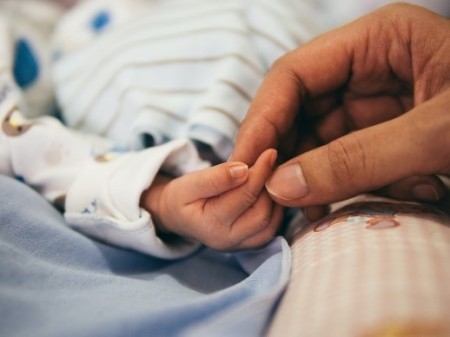Publish date: 30 April 2021
Bright Horizons for pregnant people and babies across the Tyne Valley

A North East health trust has expanded the delivery of its gold standard maternity programme to improve care for those living across Tyne Valley.
Northumbria Healthcare NHS Foundation Trust is continuing to review the way it delivers maternity care to the people of Northumberland, with a new focus on its Tyne Valley patch.
On the 3 May, the Bright Horizons team will begin to rollout the Continuity of Carer programme to pregnant people and babies in Tyne Valley, a provision it is already offering to communities across Northumberland.
The previous midwifery teams at the local midwife led units (MLU) in Tyne Valley will become the Bright Horizons team, made up of three geographical teams. Each midwife will have a dedicated home base, working as part of the team at that location to look after mums in that area.
This future proof, integrated model will enable midwives to provide continuity of carer to women across the area, both low and high-risk, throughout the antenatal and postnatal period. This also means it is more than likely that the women they are looking after will have a known midwife with them during labour.
First and foremost, continuity of carer means that there is consistency in the midwife or clinical team that provides hands on care for a woman and her baby throughout the three phases of her maternity journey:
- Pregnancy
- Labour
- The postnatal period
Secondly, it enables the co-ordination of a woman’s care, so that a named individual takes responsibility for ensuring all the needs of a woman and her baby are met, at the right time and in the right place.
Women receiving care through a continuity model such as this develop a supportive relationship built over time between the individual and their midwife which facilitates good-quality care, effective partnership working, coordination of care and advocacy for the woman.
It means that low risk women will be encouraged to labour and birth in the local MLUs where ever possible, and the midwives will schedule their shifts around the mums who have booked in their inductions and caesarean sections.
Jenna Wall, Head of Midwifery at Northumbria Healthcare NHS Foundation Trust explained: “For women this means seeing familiar faces at each of their maternity appointments, with the end goal of having their nominated midwife present at the birth. For our midwives it means meaningful opportunities to discuss healthy habits during pregnancy and building trust and relationships with women so they are more likely to respond positively. By improving the experience of women on their maternity journey, overall outcomes are going to better for all. We are delighted to be rolling this model of care out to the women of Tyne Valley, and we hope to see it adapted across the region in the near future.”
Continuity of carer is seen nationally as the future model for maternity services and the implementation is being driven by the Maternity Transformation programme. It is one of the key five commitments in the improvement of maternity services as part of the NHS long term plan and the NHS five year forward view.
Better Births, the report of the National Maternity Review, set out a vision for maternity services in England to be more personalised, placing the needs of the woman, her baby and family at the centre of care. At the heart of this vision is the idea that women should have continuity of the person looking after them during their maternity journey.
Continuity of carer for women has been evidenced to lead to better outcomes and safety for the woman and baby as well as offering a more positive and personal experience.
Evidence shows that continuity models improve safety and outcomes. In particular, it shows that women who had midwife led continuity models of care were:
- Seven times more likely to be attended at birth by a known midwife
- 16% less likely to lose their baby & 19% less likely to lose their baby before 24 weeks
- 24% less likely to experience pre-term birth
Implementing continuity of carer is therefore an important tool in meeting our ambition to reduce rates of stillbirth, neonatal death, maternal death and brain injury during birth by 20% by 2020 and 50% by 2030.
